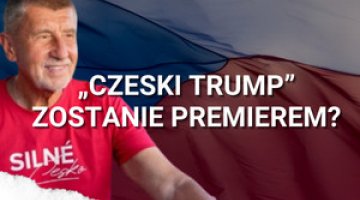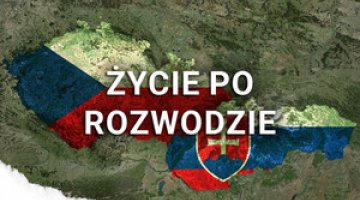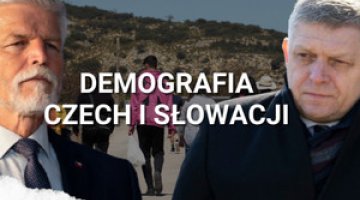Czech Republic: General Pavel wins the election

Petr Pavel won the second round of the Czech presidential election, held on 27 and 28 January. With a record turnout of 70.2%, he received the support of 58.3% of voters; his rival, the former prime minister Andrej Babiš (ANO), won 41.7% of the vote. Both clearly increased the absolute number of votes they received compared to the first round, Pavel by 70% and his rival by 23%. As in the previous round, Pavel won by the largest margin in Prague (receiving 76%) and Central Bohemia (63%), while Babiš won in the Ustí nad Labem (54%) and Moravia-Silesia (53%) regions. The new president will be inaugurated on 9 March, after the current head of state Miloš Zeman’s second five-year term ends.
In his speech, the president-elect declared his desire to unite a society “scarred by the campaign and by successive crises”. Slovak President Zuzana Čaputová congratulated him personally at his election headquarters; she emphasised the closeness of the two nations in her speech. Immediately afterwards, Pavel was congratulated by the Czech prime minister Petr Fiala, whose party (the right-wing ODS) supported his candidacy.
Commentary
- Pavel was the clear favourite in the contest with Babiš; the latter had a large negative electorate, and he failed to turn the election around despite the big drive for votes his team launched before the second round of voting. Moreover, the head of ANO’s actions probably further mobilised those voters who were unfavourable to him, who in the first round had supported candidates with a similar profile to Pavel’s (he captured up to 90% of their votes). In the campaign, the former prime minister tried to stir up negative associations with his rival, a retired general, either by building on the Czech public’s open fear of war in opinion polls, or by linking Pavel to unpopular decisions taken by the government. While the centre-right parties in Fiala’s cabinet endorsed Pavel, he does not belong to any party, and ran after gathering signatures from citizens rather than senators or deputies (as Babiš did). In his campaign, he walked the line between offering mild criticisms of the government (for example, for its delayed response to the effects of energy price hikes) and emphasising the prospect of harmonious cooperation between government and president for the benefit of the public. Unlike Babiš, who appealed mainly to social anxieties and discussed social welfare, before the second round the retired military officer resorted to lofty slogans concerning the restoration of dignity to the presidential office, and alluded to Václav Havel’s message of the victory of ‘truth over lies’.
- Unexpectedly, the second round of the campaign was rife with Polish-related themes. Babiš’s statement during one of the TV debates that he would be reluctant to send Czech troops in the event of a hypothetical Russian attack on Poland or the Baltic states had particular resonance. Later Babiš repeatedly denied this, saying that he would certainly be in favour of activating Article 5 of the North Atlantic Treaty in such a situation, and that he had given an explanation to the most senior authorities in Poland. However, the situation gave Pavel an opportunity to reproach his rival for irresponsibility and undermine the alleged diplomatic talents which Babiš had boasted about on his campaign billboards; Pavel also announced that, after the traditional visit to Slovakia, he would make his first foreign visit to Poland. Babiš himself cited a number of the current Polish government’s policies in a positive context, such as the zero VAT rate on food, as he tried to point out the passivity of the Fiala government (with which he linked Pavel). In turn, in the context of talks on the European Green Deal, the former prime minister emphasised Prague’s joint negotiation with Warsaw of exemptions in climate policy which favour the Czech Republic, and the fact that the country had gained additional EU funds thanks to this cooperation.
- Pavel’s presidency will likely be active in the foreign and security policy fields, where his actions should complement those of the Fiala government, especially in the context of the Ukraine-Russia war. He had one of his first prolonged post-election talks with President Volodymyr Zelenskiy, assuring him that his country could continue to rely on Czech support, and also (jointly with Čaputova) announced a visit to Kyiv. In his election manifesto and campaign, Pavel was critical of the prospects for cooperation within the Visegrad format, particularly because of Budapest’s attitude: he mentioned the V4’s loss of credibility and relevance, as well as the significant differences between the states on such basic issues as their attitudes toward Russia. At the same time, he has allowed for discussion about expanding the group – or even leaving it. However, these statements should be considered in the context of the election campaign and the desire to distinguish himself from Babiš, who is well-known for his close ties to Viktor Orbán. At the same time, we should expect Pavel – who has neither much experience in politics nor a base in a political party – to dedicate his first months in office to building up a broader team, establishing the key issues and building international contacts.
- Pavel’s presidency will likely contrast in many ways with the four terms of his immediate predecessors Miloš Zeman and Václav Klaus, while at the same time alluding to the decade when the highest office in the country was held by the first Czech president, Václav Havel. After 20 years of politicians in Prague Castle who have been sceptical of closer European integration, the post is being assumed by a supporter of adopting the euro (against the wishes of the vast majority of the population), and who sees opportunities rather than risks in the European Green Deal project – also in contrast to the predominant opinion in the Czech Republic. We may also expect him to place greater emphasis on human rights issues than his two predecessors did. At the same time, on the latter issue, one of the dilemmas characteristic of Czech politics is discernible, related to the domestic economy’s dependence on exports. On the one hand, Pavel says he would like to “open doors for the Czech Republic including in places where they have so far been closed”, while on the other he has announced an end to the “tacking between East and West”, and has said he will not seek a meeting with the Chinese leader. Symbolically, he held one of his first conversations after his victory with the Taiwanese president Tsai Ing-wen.
APPENDIX
Petr Pavel: a biographical note
President-elect Petr Pavel was born in 1961 in the Plzeň region. He is primarily known in the Czech Republic as the former Chief of the General Staff (2012-15) and Chairman of the NATO Military Committee (2015-18). Pavel comes from a family of the former communist elite; his father was an officer in the elite units of the Czechoslovak People’s Army. He followed in his father’s footsteps and graduated from a military college. By the end of his studies he applied to join the Communist Party, to which he was admitted in 1985. In 1988, he began a three-year course to prepare for work in military intelligence; at the time, he was chairman of a party student cell. In the end, however, he took most of the classes after the collapse and overthrow of the Communist regime in 1989. As a soldier, he commanded a unit as part of a UN mission during the war in the former Yugoslavia: he received France’s highest honours (first military, then state) for rescuing dozens of French soldiers. He combined his promotions in the army with a career as a military diplomat, representing the Czech Republic in Belgium, the Netherlands and the US. As chief of staff of the Czech army, he advocated its participation in the NATO operation in Afghanistan. He also pushed for increased funding for the military, although with little success. The pinnacle of his military and diplomatic career to date has been as chairman of the NATO Military Committee.
Pavel is on his second marriage (his current wife also has a career in the military), and has two sons from his first. He describes himself as a non-believer, although he was baptised (in one debate he described himself as a “non-practicing Christian”). He speaks English and French fluently, and claims to know Russian. He lives at the foot of Říp mountain, which is an important element of Czech national mythology (according to a legend associated with the arrival of the nation’s cultural forefather Čech there).





